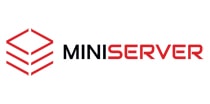[vc_row full_width=”stretch_row” css=”.vc_custom_1517935123492{margin-top: 60px !important;}”][vc_column css=”.vc_custom_1517934917814{margin-bottom: 30px !important;}”]
Two compact size devices
[vc_separator border_width=”2″ el_width=”60″ css=”.vc_custom_1519394344256{margin-top: -20px !important;}”][vc_row full_width=”stretch_row”][vc_column width=”1/2″][vc_gallery type=”nivo” interval=”0″ images=”16962″ img_size=”600×480″ onclick=””][/vc_column][vc_column width=”1/2″]
Main features
[karma_builder_icon_content animate=”animate_none” type=”fontawesome” icon_fontawesome=”fa fa-check” custom_icon=”JTNDc3BhbiUyMGNsYXNzJTNEJTIyZmElMjBmYSUyMGZhLWNoZWNrJTIwdHJ1ZS1pY29uJTIyJTIwc3R5bGUlM0QlMjJmbG9hdCUzQWxlZnQlM0J3aWR0aCUzQSUyMDI1cHglM0JoZWlnaHQlM0ElMjAyNXB4JTNCJTBBbGluZS1oZWlnaHQlM0ElMjAyNXB4JTNCJTIyJTNFJTNDJTJGc3BhbiUzRQ==” icon_color=”#ffffff” paragraph_font_size=”13px”]
Two compact size devices
[/karma_builder_icon_content][karma_builder_icon_content animate=”animate_none” type=”fontawesome” icon_fontawesome=”fa fa-check” custom_icon=”JTNDc3BhbiUyMGNsYXNzJTNEJTIyZmElMjBmYSUyMGZhLWNoZWNrJTIwdHJ1ZS1pY29uJTIyJTIwc3R5bGUlM0QlMjJmbG9hdCUzQWxlZnQlM0J3aWR0aCUzQSUyMDI1cHglM0JoZWlnaHQlM0ElMjAyNXB4JTNCJTBBbGluZS1oZWlnaHQlM0ElMjAyNXB4JTNCJTIyJTNFJTNDJTJGc3BhbiUzRQ==” icon_color=”#ffffff” paragraph_font_size=”13px”]
Completely fanless
[/karma_builder_icon_content][karma_builder_icon_content animate=”animate_none” type=”fontawesome” icon_fontawesome=”fa fa-check” custom_icon=”JTNDc3BhbiUyMGNsYXNzJTNEJTIyZmElMjBmYSUyMGZhLWNoZWNrJTIwdHJ1ZS1pY29uJTIyJTIwc3R5bGUlM0QlMjJmbG9hdCUzQWxlZnQlM0J3aWR0aCUzQSUyMDI1cHglM0JoZWlnaHQlM0ElMjAyNXB4JTNCJTBBbGluZS1oZWlnaHQlM0ElMjAyNXB4JTNCJTIyJTNFJTNDJTJGc3BhbiUzRQ==” icon_color=”#ffffff” paragraph_font_size=”13px”]
Consumption to 10 Watt device
[/karma_builder_icon_content][karma_builder_icon_content animate=”animate_none” type=”fontawesome” icon_fontawesome=”fa fa-check” custom_icon=”JTNDc3BhbiUyMGNsYXNzJTNEJTIyZmElMjBmYSUyMGZhLWNoZWNrJTIwdHJ1ZS1pY29uJTIyJTIwc3R5bGUlM0QlMjJmbG9hdCUzQWxlZnQlM0J3aWR0aCUzQSUyMDI1cHglM0JoZWlnaHQlM0ElMjAyNXB4JTNCJTBBbGluZS1oZWlnaHQlM0ElMjAyNXB4JTNCJTIyJTNFJTNDJTJGc3BhbiUzRQ==” icon_color=”#ffffff” paragraph_font_size=”13px”]
Motherboard APU
[/karma_builder_icon_content][karma_builder_icon_content animate=”animate_none” type=”fontawesome” icon_fontawesome=”fa fa-check” custom_icon=”JTNDc3BhbiUyMGNsYXNzJTNEJTIyZmElMjBmYSUyMGZhLWNoZWNrJTIwdHJ1ZS1pY29uJTIyJTIwc3R5bGUlM0QlMjJmbG9hdCUzQWxlZnQlM0J3aWR0aCUzQSUyMDI1cHglM0JoZWlnaHQlM0ElMjAyNXB4JTNCJTBBbGluZS1oZWlnaHQlM0ElMjAyNXB4JTNCJTIyJTNFJTNDJTJGc3BhbiUzRQ==” icon_color=”#ffffff” paragraph_font_size=”13px”]
2GB / 4GB RAM
[/karma_builder_icon_content][vc_row full_width=”stretch_row” css=”.vc_custom_1522840255832{margin-bottom: -35px !important;padding-bottom: 40px !important;background-color: #f4f4f4 !important;}”]JTVCYWRyb3RhdGUlMjBiYW5uZXIlM0QlMjIzJTIyJTVE[karma_builder_tab_3 animate=”animate_none” karma_builder_note=”” menu_bg_color=”#e5e5e5″ link_color=”#3a3a3a” link_color_hover=”#ffffff” link_color_active=”#ffffff” tab_bgcolor_hover=”#acd134″ tab_bgcolor_active=”#acd134″ tab_border_color=”#e5e5e5″][karma_builder_tab_3_content tab_active=”yes” nav_tab_title=”Hardware” type=”fontawesome” icon_fontawesome=”fa fa-hdd-o”]
| Product name | Expansion slot |
|---|---|
| Nano Cluster APU2 2GB/4GB Basic product codes: nanocl_2e2 (versione con 2GB), nanocl_2e4 (versione con 4GB) |
2 miniPCI express (one with SIM socket), LPC bus, GPIO header, I2C bus, COM2 (3.3V RXD / TXD) |
| Description | System cooling |
| 2x Embedded router / firewall hardware platform completely fanless | Conductive cooling from the CPU and south bridge to the enclosure using a 3 mm alu heat spreader (included). |
| Main board | Front Panel |
| . apu2e2 / apu2e4 . 2 GB or 4 GB DDR3-1066 DRAM . Storage: Boot from SD card (internal sdhci controller), external USB or m-SATA SSD. 1 SATA + power connector . Jack = 2.5 mm, center positive . 3 Gigabit Ethernet channels (Intel i211AT on apu2b2, i210AT on apu2b4) . I/O: DB9 serial port, 2 USB 3.0 external + + 2 USB 2.0 internal, three front panel LEDs, pushbutton . Firmware: CoreBoot |
Three front panel LEDs |
| Processor | Power Supply |
| AMD Embedded G series GX-412TC, 1 GHz quad Jaguar core with 64 bit and AES-NI support, 32K data + 32K instruction cache per core, shared 2MB L2 cache | 10 Watt ognuno |
| Power supply | Available colours |
| AC adapter with euro plug. Input voltage 100-240 V AC, 50/60 Hz. Output voltage 12 V DC, maximum current 2A. High efficiency. Jack inner diameter 2.5 mm, outer diameter 5.5 mm, center positive. |
Red / Black |
| Power Consumption | Certifications |
| 12V DC, about 6 to 12 Watt each depending on CPU load | CE (European Conformity) – RoHS Download Test Report |
| Drive Bay | |
| Storage: 16 GB mSATA SSD module, MLC flash |
[/karma_builder_tab_3_content][karma_builder_tab_3_content tab_active=”no” nav_tab_title=”Software” type=”fontawesome” icon_fontawesome=”fa fa-list-ul”]
List of compatibility of firewall hardware products
| Software | Compatibility | |
| pfSense | fully compatible | |
| OPNsense | fully compatible | |
| Zeroshell | fully compatible | |
| IPCop | fully compatible | |
| 3CX | fully compatible | |
| Debian | fully compatible | |
| Ubuntu | fully compatible | |
| Linux | fully compatible | |
[/karma_builder_tab_3_content][karma_builder_tab_3_content tab_active=”no” nav_tab_title=”Download” type=”fontawesome” icon_fontawesome=”fa fa-download”]
Download
Operating systems
Motherboard
Assembly and first installation
User manuals
[/karma_builder_tab_3_content][karma_builder_tab_3_content tab_active=”no” nav_tab_title=”Guide” type=”fontawesome” icon_fontawesome=”fa fa-book”]
Guide
- Guide installation captive portal with ZeroTruth
- Configure pfSense® CE 2.2.X with 3G / UMTS module
- Guide to sizing hardware firewall
- pfSense® CE vs OPNsense®: technical comparison
- Install IPCOP on APU – USB
- Install pfSense® CE on APU – USB
- Force the speed of the network cards and set the Duplex mode
- Network cards: solutions and optimizations
- pfSense® CE: Hardware Throughput Problems and System Troubleshooting
- Choose boot device in the Entry Level APU
[/karma_builder_tab_3_content][karma_builder_tab_3_content tab_active=”no” nav_tab_title=”Compare” type=”fontawesome” icon_fontawesome=”fa fa-certificate”]
Compare
To make it easier for you to choose the system that best suits your needs, we have created an interactive configurator.
Link: http://configurator.miniserver.it/
To evaluate all the possible options that characterize the choice of a firewall / router system, we have created a guide to the sizing of the equipment that you can find here:
Link: https://blog.miniserver.it/en/firewall-hardware-sizing-guide/[/karma_builder_tab_3_content][karma_builder_tab_3_content tab_active=”no” nav_tab_title=”Buy” type=”fontawesome” icon_fontawesome=”fa fa-eye”]
To see the list of all the products that can be purchased, access our e-commerce: www.miniserver.it
For the public administration: we are present on the MEPA portal, for info send an email to info@firewallhardware.it or call the number 011 19827159.[/karma_builder_tab_3_content][/karma_builder_tab_3][vc_row full_width=”stretch_row”]
Device performance analysis
[vc_separator border_width=”2″ el_width=”60″ css=”.vc_custom_1519395207389{margin-top: -20px !important;}”][vc_row full_width=”stretch_row”]
| TCP | UDP | |||
|---|---|---|---|---|
| Band | Band | Jitter | ||
| NO VPN | Bridge | 474,00 Mbps | 735,00 Mbps | 0,028 ms |
| Nat | 474,00 Mbps | 535,00 Mbps | 0,037 ms | |
| Open VPN | AES128 | 68,20 Mbps | 60,00 Mbps | 0,055 ms |
| AES256 | 58,63 Mbps | 55,00 Mbps | 0,073 ms | |
| Blowfish | 79,33 Mbps | 68,40 Mbps | 0,057 ms | |
| IPSEC | AES128 | 49,00 Mbps | 70,00 Mbps | 0,061 ms |
| AES256 | 45,60 Mbps | 54,20 Mbps | 0,028 ms | |
| Blowfish | 44,60 Mbps | 58,20 Mbps | 0,083 ms | |
| 3DES | 26,53 Mbps | 32,00 Mbps | 0,051 ms | |
[vc_row full_width=”stretch_row” el_id=”legenda” css=”.vc_custom_1518082068425{margin-bottom: -35px !important;}”]Jitter: In networks, and in particular in IP networks such as the Internet, jitter refers to the statistical variation in the reception delay of the transmitted packets, caused by the internal queues of congested routers.
Deepen the concept of jitter